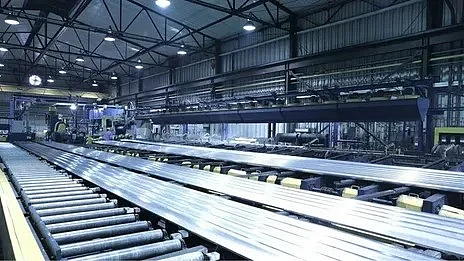The Aluminium Secondary Manufacturers Association (ASMA) has urged the government to reduce import duty on primary aluminium, saying the move would help rationalise domestic prices and support downstream industries facing high input costs.
The downstream sector, including hundreds of MSMEs, is critical for maximising value realisation for the country's economic growth.
"We urge the government to reduce the import duty on primary aluminum to ensure domestic prices are rationalised," ASMA said in a letter to the government.
The aluminum produced for the first time from its ore, alumina, through an electrolytic process is called primary aluminium. This is different from secondary aluminum, which is made from recycled scrap.
The downstream sector, ASMA said, is reeling under significant challenges that are threatening the viability of the sector to compete since "we are losing market access both domestically and internationally." The import duty of 7.5% on primary aluminum has inflated the cost of aluminum supplied by domestic primary manufacturers. Considering that primary aluminum constitutes nearly 80% of total cost of production for downstream manufacturers, the inflated cost has significantly increased the selling price.
"Therefore, Indian-made aluminum downstream products are unable to compete internationally due to elevated prices," the letter said.
Even domestically, Free Trade Agreements (FTAs) like the ASEAN-India agreement allow finished goods to enter India at zero duty.
For example, aluminium plates, sheets, and strips from ASEAN countries attract zero per cent duty, directly undercutting domestic manufacturers who must procure their raw material at a 7.5% duty-inclusive price.
This distortion places downstream manufacturers at a distinct cost disadvantage. While India produces aluminum at one of the lowest costs in the world, this advantage is not passed on to domestic consumers.
Instead, domestic prices for primary aluminum are determined by an import-parity model, aligning with the London Metal Exchange (LME) benchmark plus duties.
This practice is sustained by a highly concentrated primary market where a few large producers dominate supply and pricing. As a result, MSMEs face price rigidity and are exposed to global price volatility without benefiting from India's natural cost advantages.
"As a result of this, the downstream value-added sector is unable to compete. We therefore request your kind intervention to provide a level playing field for the domestic industry," it said.
































